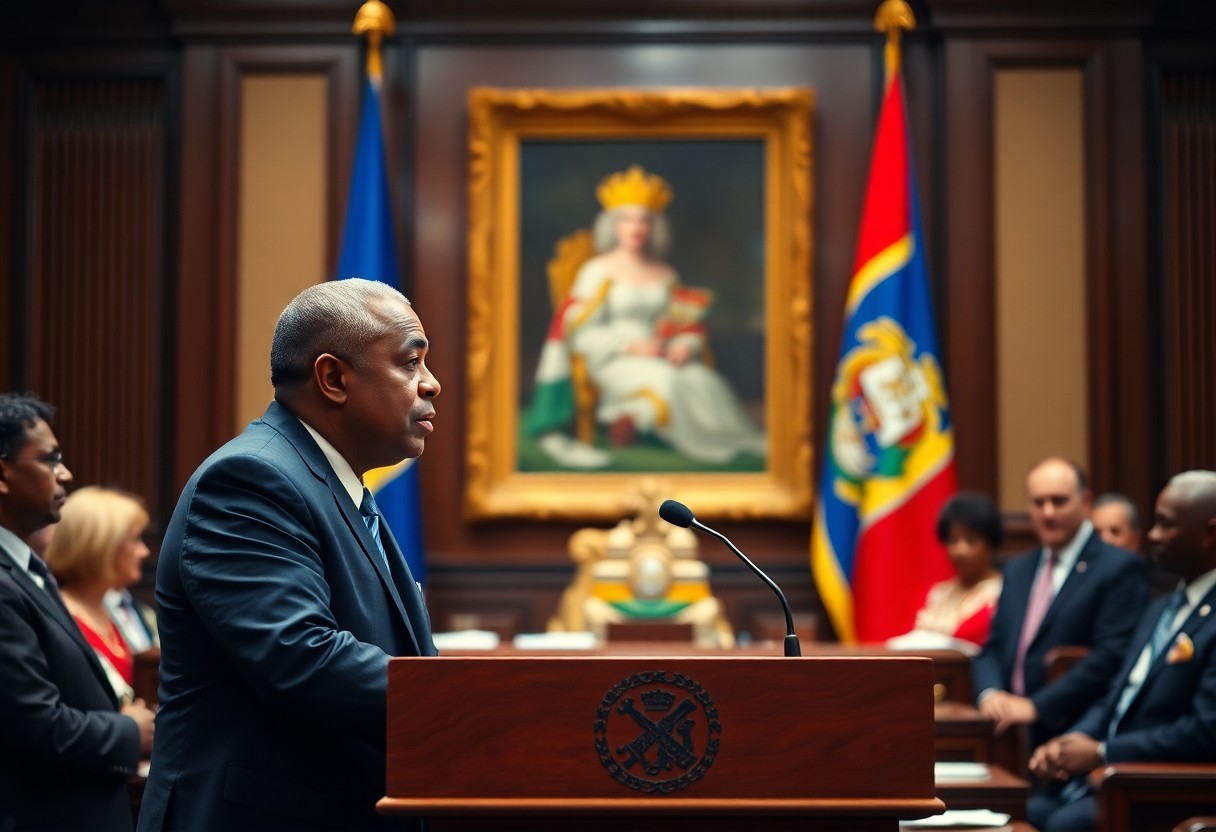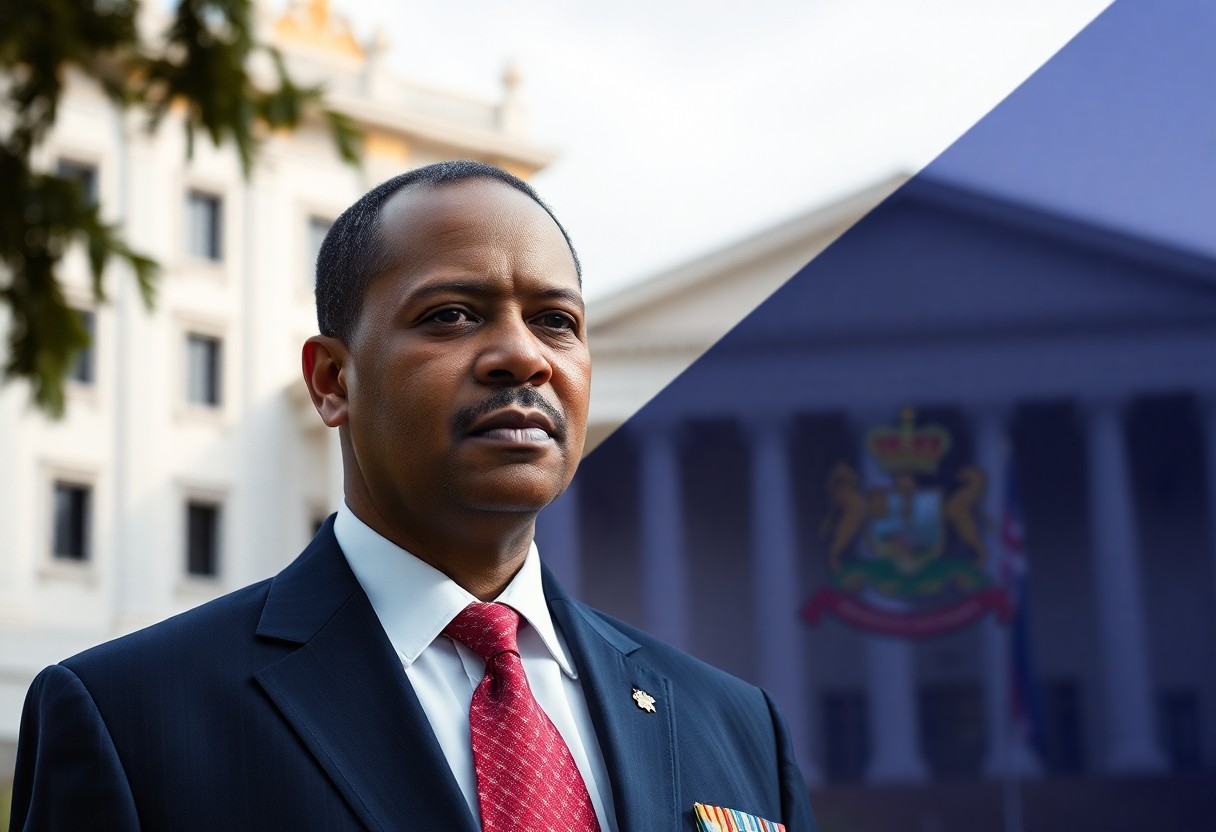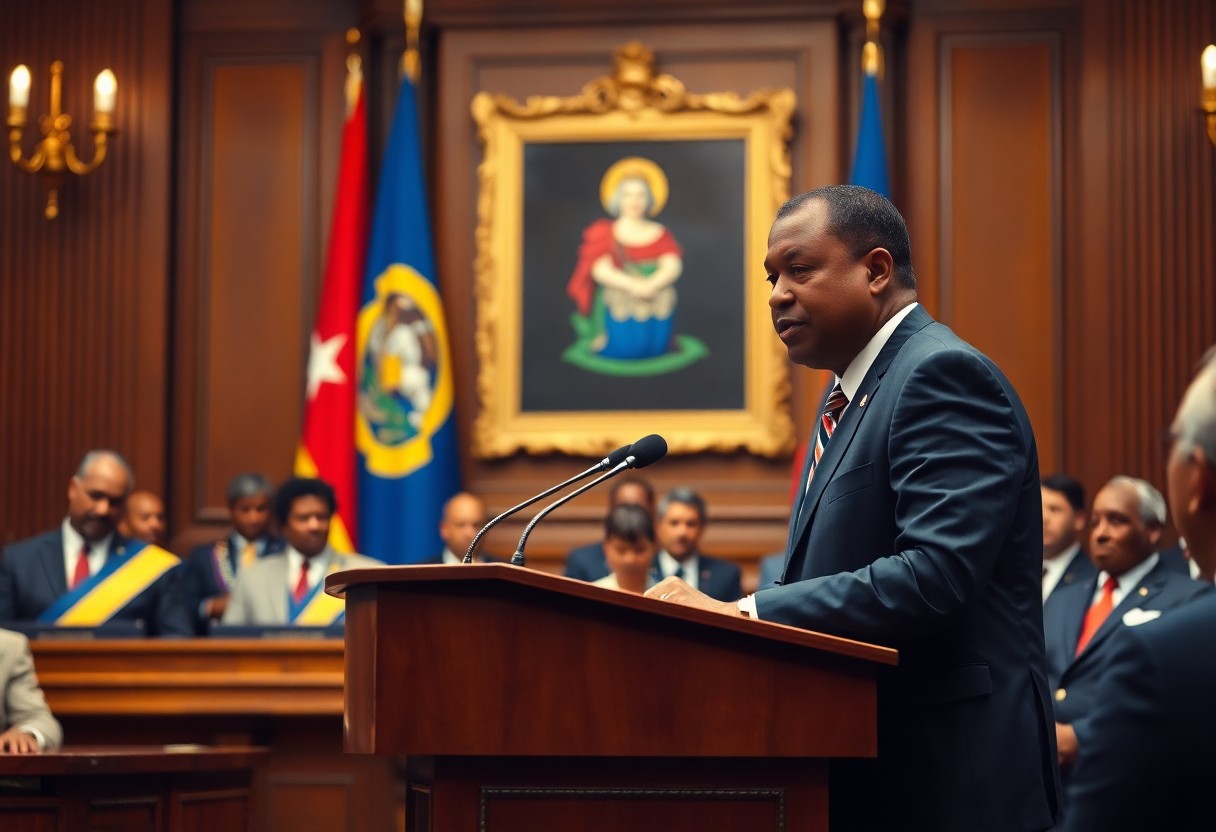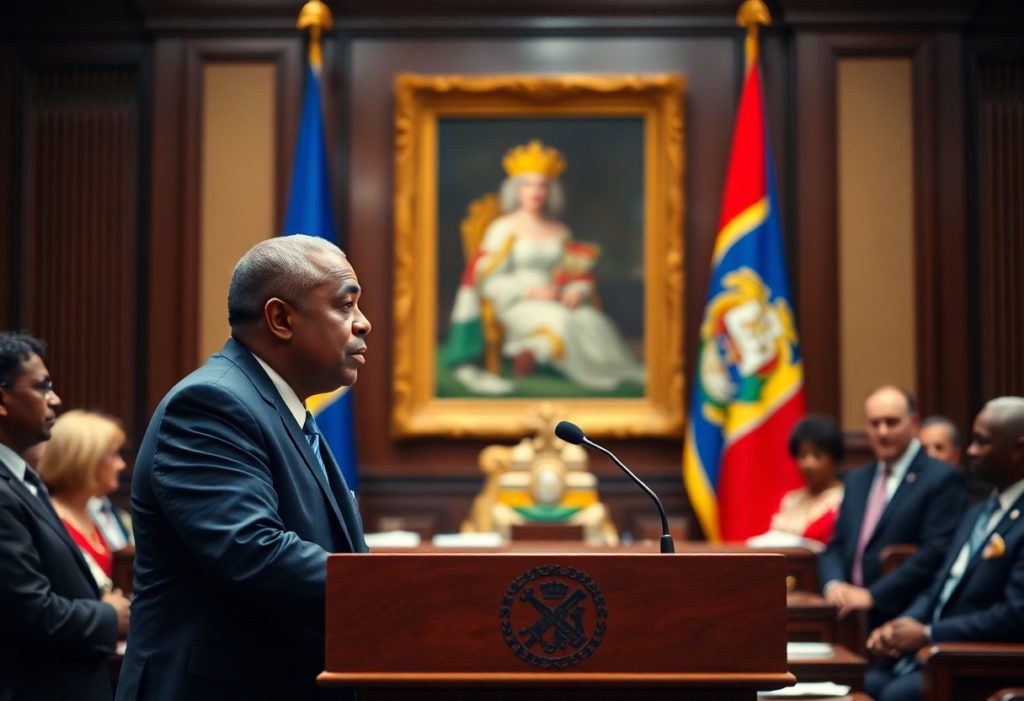Belize presents a rich and intricate political landscape that captivates and engages observers. Operating as a parliamentary democracy, Belize follows a constitutional framework where the influence of elected representatives is paramount in the governance process. Although Belize is a Commonwealth realm with King Charles III serving as the ceremonial head of state, the true political power resides with the Prime Minister and the National Assembly. This distinctive governmental structure merges traditional British parliamentary customs with modern democratic principles, resulting in a unique political environment that reflects the diverse historical and cultural heritage of Belize.
Diving Deeper into Belize's Constitutional Framework for Effective Governance
The constitutional framework in Belize serves as the foundation for a robust parliamentary democracy within the Commonwealth realm. This system is meticulously crafted to harmonize the essential elements of democratic governance with the historical institutional frameworks inherited from British colonial influence. The constitution, adopted in 1981 following Belize's independence, articulates the fundamental political structure of the nation, clarifying the roles, responsibilities, and interactions among the different branches of government. This carefully designed framework guarantees that governance in Belize is both representative of and accountable to its citizens, fostering a sense of engagement and participation in the democratic process.
The Ceremonial Role of the Monarch in Belize's Governance
Within the framework of Belize's governance, the British monarch serves a pivotal role as the ceremonial head of state. While King Charles III is the nominal sovereign, his duties are carried out locally by a Governor-General appointed based on ministerial advice. This representative's role is largely symbolic, involving formal governmental ceremonies and various constitutional responsibilities that are integral to the governance of Belize. This arrangement highlights the longstanding historical connections between Belize and the British monarchy while simultaneously allowing for the flourishing of local governance, ensuring that the needs and aspirations of Belizean citizens are met.
The Prime Minister: Belize's Principal Political Leader
In the realm of Belizean politics, the Prime Minister holds a position characterized by executive power and political leadership. This role is typically assumed by the leader of the political party that secures a majority within the House of Representatives. The Prime Minister's responsibilities encompass directing national policy, overseeing governmental operations, and serving as Belize's representative on international platforms. The influence exerted by the Prime Minister is crucial in shaping the direction of the nation and its political landscape, making this role fundamental to the effective functioning of the government.
The constitutional provisions explicitly outline the extensive responsibilities entrusted to the Prime Minister in the governance of Belize. This role includes critical decision-making across a multitude of governmental domains, underscoring the importance of strong and effective leadership. The Prime Minister leads the Cabinet, proposes legislative initiatives, manages national economic strategies, and acts as the principal political spokesperson for the country. While their authority is substantial, it is judiciously balanced by parliamentary oversight and constitutional constraints to ensure accountability.

Assessing the Prime Minister's Impact on Governance in Belize
The Prime Minister of Belize serves not only as the head of government but also wields significant political influence and authority. As the leader of the majority party in parliament, the Prime Minister plays a vital role in steering national policy, representing Belize on the global stage, and managing the executive branch of government. Their position is essential for ensuring effective governance and facilitating national decision-making processes that are responsive to the needs of the citizens.
Understanding the Comprehensive Powers of the Prime Minister
To fully appreciate the political framework of Belize, it is essential to recognize that the Prime Minister possesses significant constitutional powers that have a profound impact on the nation's political landscape. Their capacity to appoint cabinet ministers, advocate for new legislation, shape government policy, and represent Belize in various international forums underscores their pivotal role in governance. This extensive influence positions the Prime Minister as a central figure in the governance of Belize, with the ability to significantly influence the country's trajectory and future.
Decoding the Election Process for the Prime Minister's Selection
Typically, candidates for ministerial positions emerge through party-based electoral mechanisms. It is common for prospective Prime Ministers to be leaders of their political parties who successfully secure seats in the parliament. Their selection is contingent upon the performance of their political party in national elections, reflecting the core democratic principles that underpin the governance structure of Belize.
The election process in Belize encapsulates complex political dynamics that are essential for a comprehensive understanding of its governance. Candidates must adeptly navigate a range of challenges, including local constituency elections, party nominations, and national voting trends. Generally, the leader of the party that wins the most parliamentary seats ascends to the Prime Minister's position, highlighting the direct correlation between electoral success and governmental leadership in Belize.

Understanding the Bicameral Parliamentary System of Belize
Belize functions under a parliamentary democratic framework, adopting a Westminster-style governance model that is deeply rooted in British colonial traditions. The bicameral legislature consists of two chambers: the House of Representatives and the Senate, which together form the primary legislative body responsible for drafting and enacting national laws that govern the nation.
Exploring the Role of the House of Representatives
The House of Representatives plays a crucial role in ensuring democratic representation, comprising 31 elected members who are chosen through constituency-based elections. These representatives are directly elected by the citizens and function as the primary democratic voice within Belize’s political framework. Each member represents a specific geographic region and its local interests, ensuring that the diverse needs and perspectives of the populace are adequately voiced and considered in the legislative process.
The Responsibilities and Structure of the Senate
Contrasting with the House of Representatives, the Senate operates as an appointed upper chamber with 12 nominated members. These senators are not directly elected; rather, they are appointed by the Governor-General based on recommendations from various political and social sectors. This system facilitates a more nuanced perspective on national legislation, enriching the legislative process with diverse insights and expertise that contribute to well-rounded governance.
This legislative body assumes a critical advisory role in Belize’s governance. Senators are typically selected to represent a wide array of interests, including business, labor, religious organizations, and civil society. Their primary responsibility involves reviewing and potentially amending legislation passed by the House of Representatives, thereby ensuring a comprehensive and balanced approach to lawmaking that adequately considers multiple societal perspectives.

Dispelling Common Misconceptions about the Political System in Belize
Despite prevalent beliefs, Belize's governmental structure is considerably more intricate than many might assume. Widespread misunderstandings about political leadership often lead to confusion regarding the genuine nature of governance in the country. It is essential to recognize that the reality of Belize’s political system diverges significantly from surface-level perceptions, unveiling nuanced layers of power and governance that merit deeper exploration.
Distinguishing Between “President” and “Prime Minister” in Belize
Given that numerous countries operate under presidential systems, there is a common tendency to mistakenly assume that Belize follows a similar model. However, it is crucial to grasp that Belize operates under a parliamentary system, where the Prime Minister acts as the head of government rather than a presidential figure. This distinction is vital for understanding the political leadership structure, as the Prime Minister is elected from the majority party in parliament, contrasting with a directly elected presidential role.
Unraveling the Complex Political System of Belize
Delving deeper into Belize’s political framework reveals intricate interactions among the components of constitutional monarchy, parliamentary democracy, and local governance. It may be surprising to learn that while the British monarch remains the official head of state, the daily governance is managed by elected officials through a representative democratic system, emphasizing local accountability and responsiveness to citizens.
Common misconceptions surrounding Belize's political structure often overlook the complex balance of power between local institutions. You might be astonished to find that the system comprises multiple governance levels, including a national parliament, local councils, and the influence of the British monarchy through a Governor-General. Understanding this nuanced political landscape requires a deeper comprehension beyond simplistic categorizations of governmental styles, revealing the multifaceted nature of Belize's governance.
Navigating the Dynamics of Governance and Political Relationships in Belize
It is vital to recognize that Belize operates as a parliamentary democracy within a constitutional monarchy, where the British monarch serves as the ceremonial head of state. Your understanding of the political landscape is significantly shaped by the Prime Minister's substantial power, who leads the government and represents the majority party in the National Assembly. While the political system appears stable, potential tensions between political parties can create intricate governance challenges, influencing national decision-making processes. An awareness of these dynamics will enhance your appreciation of the delicate balance of power in this Central American nation, where historical influences and democratic processes continuously shape the political trajectory.
Tracing the Evolution of Belize's Political Landscape Through History
The political landscape of Belize has emerged from a rich and multilayered colonial past, where British colonial rule has significantly impacted its governance structure. Exploring the nation’s political evolution reveals a transition from being a British Honduras colony to achieving independence in 1981. This transformative period marks a critical juncture for understanding Belize's governmental framework. Your exploration will uncover how British parliamentary traditions have fundamentally influenced Belize’s current political system, creating a unique blend of Westminster-style democracy and local governance that continues to define the country’s political identity in the present day.
Essential Insights on Belize's Political Structure and Governance
In summary, Belize operates as a parliamentary democracy within the Commonwealth realm, where the Prime Minister holds primary executive authority. While Queen Elizabeth II historically served as the head of state, King Charles III currently occupies a largely symbolic role. Understanding Belize’s governance revolves around the National Assembly, comprising elected representatives responsible for drafting and enacting legislation. The Prime Minister, typically the leader of the majority party, effectively governs the country, making crucial decisions that shape Belize’s political landscape. This system adeptly balances democratic representation with the principles of constitutional monarchy, ensuring a stable and responsive governance structure.
Frequently Asked Questions Addressing Belize's Political System
What Are the Fundamental Functions of Belize's Political System?
Belize operates as a parliamentary democracy within the Commonwealth realm. The Prime Minister serves as the head of government, leading the executive branch. The Parliament consists of two chambers: the House of Representatives (comprising elected members) and the Senate (comprising appointed members). While Queen Elizabeth II historically served as the head of state, King Charles III currently fulfills this ceremonial role, represented locally by a Governor-General.
Who Currently Leads Belize, and How Are National Leaders Selected?
Prime Minister Johnny Briceño leads Belize, heading the People’s United Party (PUP). National leaders are selected through democratic elections, in which citizens cast votes for representatives in the House of Representatives. The political party that secures the majority of seats typically forms the government, with its leader becoming the Prime Minister. Elections are conducted every five years, ensuring consistent democratic engagement and representation.
What Legislative Authority Does the Belizean Parliament Hold?
The Belizean Parliament possesses substantial legislative power. The House of Representatives is responsible for drafting, debating, and passing laws that influence national policy. Members propose legislation, approve national budgets, and exercise oversight over government operations. The Senate reviews proposed laws and can recommend modifications, ensuring that both chambers play vital roles in upholding democratic processes and representing the interests of Belizean citizens.
The Article Who Really Runs Belize? The Prime Minister, Parliament, and Monarchy Explained appeared first on Belize Travel Guide
The Article Who Runs Belize? Insights on the Prime Minister and Government Was Found On https://limitsofstrategy.com



The intricacies of Belize’s political structure are indeed fascinating, particularly how its historical connections to Britain inform its contemporary governance. However, I find myself pondering the limitations of a parliamentary democracy within a small nation like Belize. For instance, while the Prime Minister and the National Assembly hold significant power, how effectively can they represent such a diverse population with varying interests and needs?